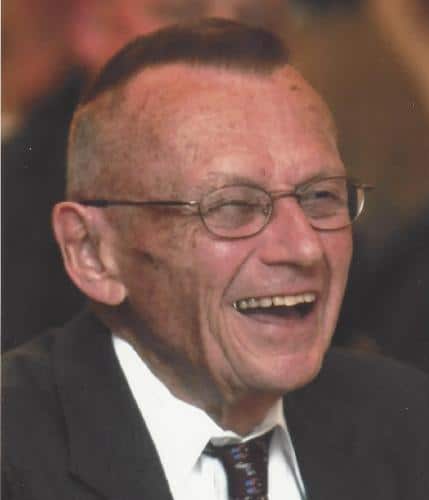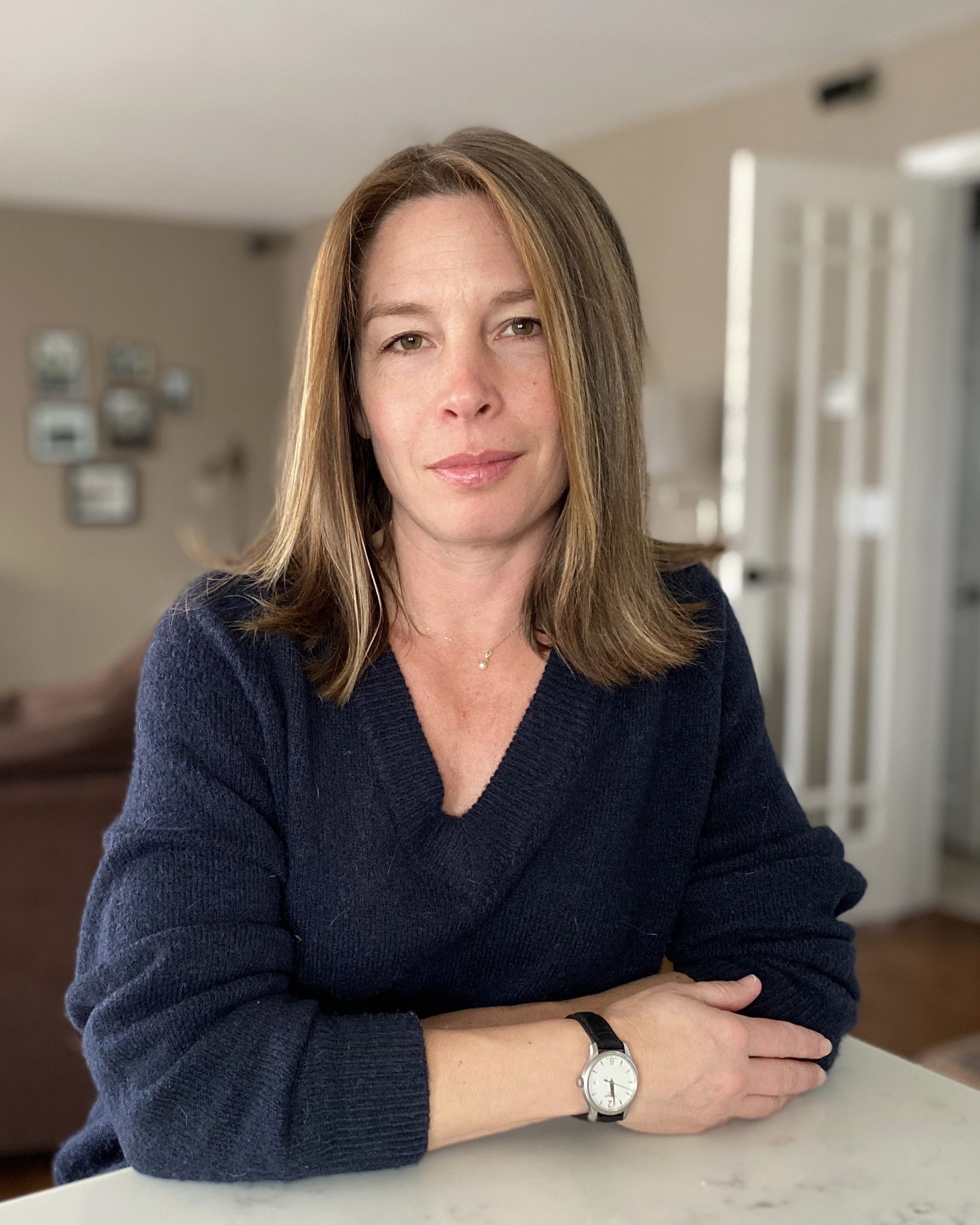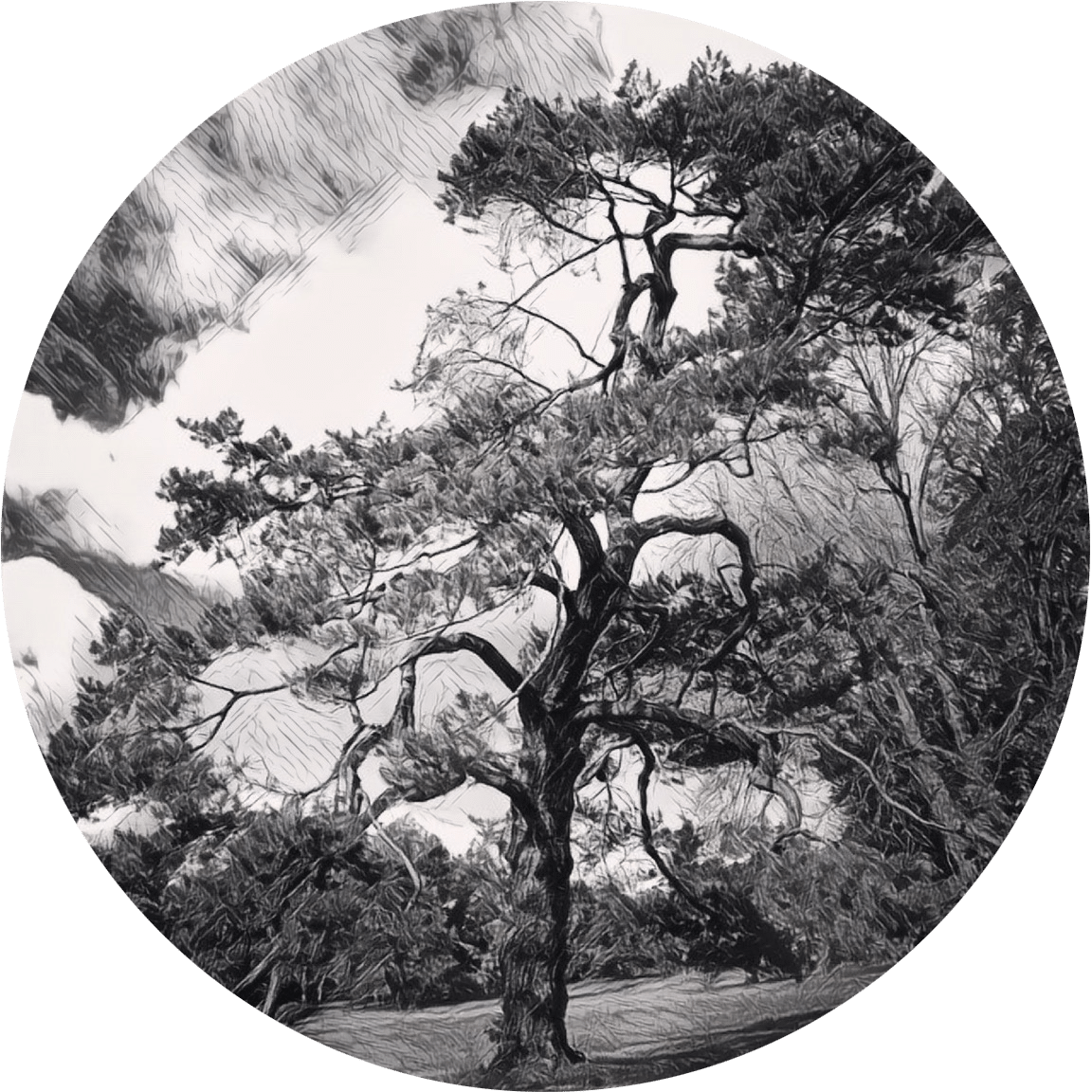The following interview with Theodore R. Cummings was conducted in November 2013. Mr. Cummings, a friendly, energetic, and overall lovely interview subject, died two years later in September 2015.

Since retiring from his position as chairman of the Manchester, Conn. Democratic Committee in 2007, a position he’d held for 47 years, lifelong Manchester resident Ted R. Cummings has been “staying out of the way,” he said, while spending time with friends and family. Fresh from a trip to Israel to visit a son who’s been living there with his family since 1974, Cummings agreed to spend some time talking to the Journal Inquirer about his childhood, his participation as a Marine in the Battle of Guadalcanal during World War II, and what inspired his interest in politics.
Q: What is your strongest memory of childhood?
A: The constant work of my father and mother. If I think back on it, if I lived to be 1,000, I could never meet their work habits. My father was an individual businessman, a milkman, and you know that’s when the milk was to be on the doorstep of the many, many people who then were working. When I was a kid, most of them worked in the Cheney Mills that were still productive, and in the insurance industry in Hartford, and at the expanding Pratt and Whitney aircraft engine plant in East Hartford. The milk had to be on the steps at 6 a.m. or before, so that figure just gives you an idea of how hard and how early the start of milkmen. Anyway, I remember how hard they worked, and that they expressed a quiet, forthright manner that they did pass on.
If you were to write your memoirs, what would the title be?
I think I’d probably dress it up, but the sense would be I’m a lucky man.
What makes you feel you’ve been lucky?
I’ve had so many people who have been so very good to me, taught me so much – tried to, anyway – and were very generous, respectful. And even though we were often on opposite sides, we at some point put those differences aside and ended up working together when we’ve both had interests in the same objective. I’ve been lucky that way. In general, people have been very, very good to me. I feel a little like the Lou Gehrig speech. He made a speech when he retired with [ALS] at Yankee Stadium. It was one of the most beautiful, off the cuff, speeches, and he began, “I’m the luckiest man on the face of the earth,” and went on to describe, very briefly, why. I remember the first words, and I guess that’s why I said what I did about feeling lucky.
What was your proudest accomplishment as Democratic chairman?
I think most of it. What I was involved with was done by others, and I had a small hand in it. I think what I’m most proud of is the fact that I was allowed to work with so many outstanding people who during their time built new schools and firehouses and pools and streets and recreation fields and social services, and so many other things in which I participated a bit.
How did you become interested in politics?
One of the best kept secrets in Manchester, 83 units the size of a two-car garage that were built by the town and state on land now occupied by the police station and Illing Middle School. These were built after the war to provide housing for veterans. There were a lot of us, and many of us were married with children, or children coming, and we didn’t have a pot and rents were very low. It was a lottery system to get in. We lived there and were able to get out of our parents’ hair. Our parents were very generous. When my brothers and I came home, we didn’t have anything, and our parents took us in.Can you imagine that? They found the room for each of us in the large house on South Main Street until we got settled.
At the very beginning, the veterans’ homes were heated by bottled gas. And they were little four-room places, built on piers, so the wind whistled underneath them. We thought they were palaces, but they were very cold in the winter, and the bottled gas prices went higher than the rent, and so we said, “”We’ve got to do something about this.” A group of us organized and went before the town in 1948 and made our case, and my interest in politics continued.
I always viewed politics with a large amount of respect – for the public service aspect of it, because that’s really what it is. If your view of democracy is going to work, it has to be a carefully thought out view of what’s doable and what will help the largest number of people.
How much time did you spend in the Marines?
A little over four years. I joined the Marines right out of high school in the summer of 1941, about six months before the war.
I brought the papers home, I was 17, from the Hartford recruiting office. We didn’t have a car – I didn’t have a car, and not many did, then as compared to today – so I went on the bus and came home with the papers to be signed, because I was 17. My mother was pretty upset because I hadn’t given anyone the notion I was going to go. An older brother had gone into the Marines two months earlier, and I was always competing with him, so I did it. He told me to see my father, who had just finished his day’s work at about three in the afternoon. He was pulling weeds in the back yard, and I took the papers to him and said, “Pop, would you sign these, please? I want to go.” He looked at them quietly. He was very quiet for a couple of minutes, and he said, “There’s going to be a war, you know.”
I’ll remember those few words forever. Because here was a man, never went beyond 8th grade, worked all the time, spoke little, read the local papers from the first letter to the last period, and “There’s going to be a war, you know.” This is six months before December 7, when Pearl Harbor was bombed and the war began. I said, “Aw, there’s not going to be a war, you know. Just sign them. I want to go.” He said, “Okay. I’ll sign them.” And he did. And I went. And December 7 happened, and the world turned upside down.
But it was an indication of what wisdom our parents had, if we’d only listen to them. But at that age, I knew everything. And I knew nothing. A few months later, I discovered that when we went to war in the Pacific. It was a long time ago, but there are some things that remain current.
What was your best military experience?
The best military experience? Surviving. No, there was an incredible coincidence that happened. I had a brother on a heavy cruiser, and he went down on the night of August 9 (1942) off Guadalcanal, the island on which we had landed two days previous. We were there for four months, and it was no vacation. There were no damn dancing girls, and the enemy wanted the island back and kept coming and coming and coming. The place was diseased, and it was a bad time.
When we were relieved by the Army in mid-December, we went to Brisbane, Australia. We were sent there to rebuild a badly damaged division. And while there, to make it short, somehow I met my brother who had survived the sinking of the cruiser that we saw. We sat on the island and saw this horrific night naval battle, the most tremendous fireworks display anyone would ever see. And I thought he was gone, because the casualties were very high that night for the Navy. And he thought I was gone, because Guadalcanal was a difficult place. And can you imagine, one week before Christmas in 1942, we met. The details are a story in themselves. But we sent a cablegram back to our parents, and to his wife, that we were alive and had met in Brisbane, Australia. It was just one of those hard to describe, and believe, events that so often happened during the war.
What was your worst military experience?
The death of a friend, friends, in actions against the enemy. When we were together—and I guess you always feel that…you wonder why it was, especially as you get older… You realize how very lucky it was, and you feel self-conscious that it was him and not you. And you feel a kind of responsibility. I think that’s… I think that’s a trait of human nature, when you realize in combat that you’re always watching one another’s back, and you’re always together. You count on each other. Without that you’ve got nothing. That’s the best I can answer.
Did your brothers also end up making it home from the war?
There were three of us who served. One brother who served in the Marines, who I mentioned earlier. He survived. And the older brother, who was on the cruiser that was sunk, he survived. And then he went in the submarine services and did about ten war patrols in the Pacific, and he survived. We all made it.
______________
Originally published in the Journal Inquirer Saturday, Nov. 30, 2013

Kristen Tsetsi is the author of the post-Roe v. Wade novel The Age of the Child, called “scathing social commentary” and “a novel for right now.” She is also the author of the novels The Year of Dan Palace and Pretty Much True (studied in Dr. Owen W. Gilman, Jr.’s The Hell of War Comes Home: Imaginative Texts from the Conflicts in Afghanistan and Iraq). Kristen’s interview series at JaneFriedman.com offers behind-the-scenes insights into all things writing and publishing.




Thank you Kristen. I got to know Ted during the last three years of his life.
He was a good man.
All the best to you and your beloveds,
Nina
back up